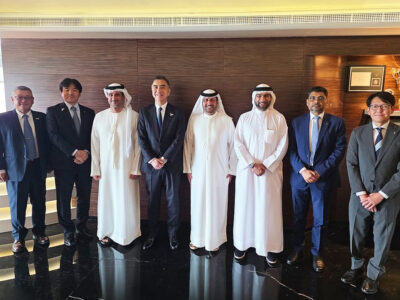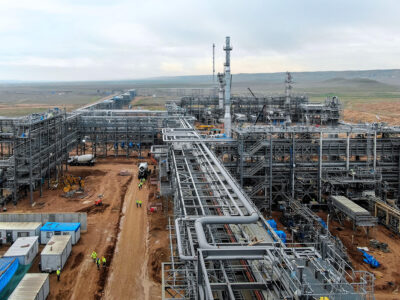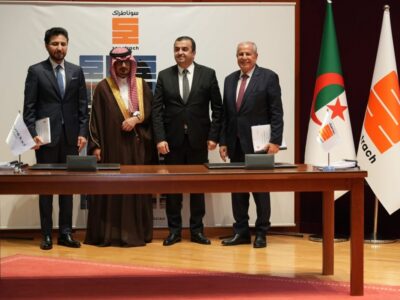Abu Dhabi-based Masdar is going Dutch in its plan to develop a green hydrogen supply chain to Amsterdam and support the markets in the Netherlands and Europe.
Masdar, a world-leading clean energy company, has signed a Memorandum of Understanding (MoU) with four Dutch companies – the Port of Amsterdam, SkyNRG, Evos Amsterdam and Zenith Energy.
The agreement was signed in the presence of Dr Sultan bin Ahmed Al Jaber, Minister of Industry and Advanced Technology, COP28 President-Designate, and Chairman of Masdar, and Wopke Hoekstra, Minister of Foreign Affairs for the Netherlands.
Masdar’s green hydrogen business agreement
The parties will jointly develop a green hydrogen supply chain, focusing on production in Abu Dhabi and export to the Netherlands through the port of Amsterdam. The exported green hydrogen will be delivered to key European sectors – sustainable aviation fuel (SAF), steelmaking, and bunkering for shipping. It will also be supplied to new, emerging European offtakers, via pipeline, truck and barge.
Together, the parties will explore several hydrogen transportation methods, with a focus on liquid organic hydrogen carriers and liquid hydrogen.
Port of Amsterdam, the operator of Europe’s fourth-largest port, is committed to scaling up green hydrogen capabilities and is working closely with commercial parties active in its port on green hydrogen development. SkyNRG is developing a network of SAF production facilities that require green hydrogen as input.

Zenith Energy and Evos Amsterdam are the operators of some of the most prominent blending and storage terminals in the port. Zenith is developing a liquid hydrogen supply chain, while Evos Amsterdam is working on a liquid organic hydrogen carrier supply chain.
Dr Al Jaber commented: “The UAE aims to play a central role in the emerging green hydrogen economy and this partnership with the Port of Amsterdam and associated players in the green hydrogen space would help position Abu Dhabi as a key hub for green hydrogen development.”
Welcoming the collaboration between Dutch and UAE businesses in the field of hydrogen, Hoekstra said: “The Netherlands is keen on developing green hydrogen corridors with major future exporting countries like the UAE. Our country is well positioned to become a hydrogen hub for the Northwestern European market.”
Last December, Masdar announced its new shareholding structure and green hydrogen business unit, with a goal of achieving 100 GW renewable energy capacity and green hydrogen production of 1 million tonnes per annum annually by 2030. Masdar is actively involved in a number of projects related to green hydrogen production.
Mohammed Jameel Al Ramahi, Chief Executive Officer of Masdar, added: “Masdar believes green hydrogen to be a promising energy source for hard-to-abate sectors in support of global decarbonisation, which is why we launched our dedicated green hydrogen business last month.
“We are pleased to partner with Port of Amsterdam, SkyNRG, Evos Amsterdam, and Zenith Energy to leverage our synergies in the fuel and logistics sectors to see how green hydrogen can help us achieve our shared goals for decarbonisation and sustainable economic growth.”
Green hydrogen is produced with green electricity from renewables like wind or solar, in a process that separates water into oxygen and hydrogen via electrolysis. The International Renewable Energy Agency has stated that hydrogen will be an essential component of a net-zero energy system and has a key role to play in decarbonising sectors that are difficult to electrify, such as long-haul transport.
The global green hydrogen market is projected to reach $72 billion by 2030, while PricewaterhouseCoopers (PwC), has estimated that by 2050, hydrogen demand could be between 150 and 500 million metric tonnes per year.








